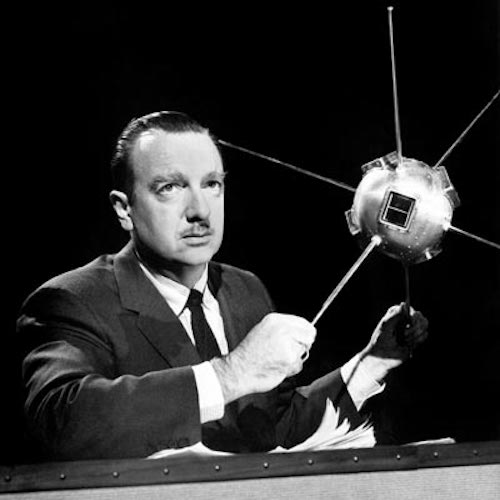This past week I cut myself off from news.
I decided to give myself a birthday news fast and to observe how it affected my mood and stress levels.
I wasn’t super strict with it and it wasn’t a complete social media hiatus. I still used Facebook but didn’t click on anyone’s news links or any of the trending topics on the side. I didn’t use Twitter.
News is somewhat unavoidable if you are out there in the world. Televisions are on, newspapers are visible. And that’s okay. But I didn’t seek it out.
And to be honest, it felt good.
I was growing weary of everything Donald Trump. I feel like my own country of Canada is getting very Donald obsessed, understandably—we’re neighbours! But it was all getting a bit too much. In the weeks leading up to my birthday I was just feeling news’d-out and fed up.
There is a level of guilt that can come from “tuning out” for a bit.
We can feel pressure from our politically involved friends to be connected and active all of the time. There is also an unsaid pressure from social media—this idea that if we aren’t constantly connected we might be missing something or that if we are enraged or disagree with something we have to engage and argue.
When I hear the news, I don’t always have the ability to disassociate my emotions from the story. I can feel myself getting anxious when I read or hear about certain topics. My time away from the news has been peaceful and quiet, both outside and inside my head.
Less buzz. Less stress.
While I don’t think I’m interested in remaining “news free” I am going to strive for more of a balance and absorb news more mindfully.
There are a few things we can all do to try to bring more mindfulness into how we take news into our lives and how we let it affect us:
1. We can observe how reading or watching the news makes us feel.
How impassioned are we when we hear news stories that we are personally connected to? Do we feel detached? Anxious? Sad? Angry?
I am not suggesting that we should not feel these feelings. If we don’t feel anger and sadness in reaction to some of the things happening today, I think there might be something wrong with us. But we can just simply observe these feelings. Where do they reside in our body? Is it a tightness in the chest? A sinking feeling in our stomach? A burning feeling in our head? By observing the origin of our negative feelings and feeling them, rather than pushing them aside, we may notice them begin to lessen in intensity.
2. We can take a media fast.
We should choose a period of time that works for us so we can allow ourselves the space to remember what it’s like to not feel these feelings. The dramatics of current events can be addictive whether it’s the personal news of our Facebook friends, to the news from our own city and abroad.
If we only have time to do a one day fast, we can choose that. If one week sounds inviting, we can give it a try. There are no rules with this.
We can observe how we feel when we don’t read the news. Is there any difference? What about the impulse to constantly check? Is it uncomfortable when we don’t give in to this? How does it feel to not know what is going on?
3. We can choose mindful activities to fill in the space where news once lived.
Mindfulness meditation is a good place to start. We can read a book. Exercise. Hang out with friends. Do something recreational and fun that doesn’t involve our computer screen. Get absorbed in the fantasy world of a good film. We all need breaks from reality once in a while.
When we come back to the news, we can choose a more mindful approach to digesting it. We can set limits on how much time this takes up in our day. Be mindful of clicking through, article to article. Be aware of trolls, the comment sections and how getting involved in these areas makes us feel. Breathe while we read (I have a hard time with this one). Be mindful of our breath when we are on the computer. Take breaks.
4. We can share positive news stories instead of only negative.
We can be more aware of the sensationalism of commercial news that tends to focus on stories that are geared to make us fearful. And we can realize that for every negative news story out there, there are a hundred more positive things happening in the world that aren’t necessarily getting coverage.
We can be more mindful of our news sources and spend more time consuming news that comes from a balanced and fair perspective. We can get news from first hand sources when possible. Learn about livestreams and seek news from the source on Twitter. Be wary of major media outlets and instead choose independent media. We can get news from around the world, not just our country. Recognize the smallness of your current location, and expand your horizons.
I can’t advocate for long term disassociation or disconnection. I have friends who just don’t look at any news because they find it too stressful and negative. I personally believe that ignorance is bliss, but it is not for me.
I am happy to be aware of the news and I think it does help us to be more engaged and aware of ways we can contribute and make a difference. I appreciate disseminating and gathering information from friends and being able to engage in political discussions when hanging out, even if we don’t always agree.
By observing and changing our media habits, we can teach ourselves how to be engaged and politically aware while not sacrificing our mental well-being and stability. In doing this, we’ll learn how to communicate and share these stories better, without getting hooked by negative emotions when we run up against people with whom we don’t agree.
~
Author: Jenn Peters
Image: Flickr/TheNerdPatrol
Editor: Erin Lawson







Read 2 comments and reply